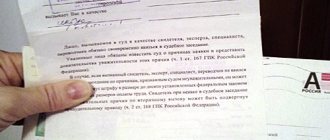Litigation requires a thorough approach and certain preparation from the actors. Participants in the process interact with the court. If you do not want to violate the established standards of behavior, it is recommended to find out in advance how to address the judge during his work.
Themis' servants have the right to apply a fine to the troublemaker. It is also possible that the court will make a biased assessment of the actions of the offender himself if they are considered during the trial. Which entails additional troubles.
It is important to understand that violation of the rules of behavior in the courtroom inevitably leads to difficulties
You can read about bringing to administrative liability in our article here.
How to address a judge during a civil trial
The rules of conduct during this event are different from those in criminal proceedings. If you are a participant in civil proceedings, the Code of Civil Procedure will help you.
Article 158 of the Civil Code of the Russian Federation
The postulate describes in detail the rules for applying to court.
“Dear court” - this is the calling phrase if the commission includes one or more representatives of the law.
Consultations in court
What behavior should a person have if there are questions? But you can’t ask them to the judge. It has visiting hours and therefore you should make an appointment in advance for a consultation. In this case, you can get answers to all questions.
It should be borne in mind that judges do not help prepare documentation. This work is done by lawyers. In all court buildings there are information stands where there are samples of various applications, details for transferring state fees and other necessary information for citizens.
It is important to follow all the rules, otherwise breaking them may result in a fine. Moreover, the court is an executive branch, and therefore, when addressed impolitely, a citizen shows his attitude towards the country.
Appeal to the judge in a criminal trial
If there is a criminal proceeding, participants should obtain information about the standards of conduct in the Code of Criminal Procedure.
Article 257 of the Criminal Code of the Russian Federation
In the case when the meeting is chaired by a single judge, the speech of those present relating to his person must begin with the words “Your Honor.” There is a situation where a panel of judges is working on the process. Then the address “Dear Court” would be appropriate.
Tip No. 4. Follow the minutes of the court hearing.
The protocol of a court hearing is an important procedural document that reflects the course of the trial and its most important moments. Its content and rules of compilation are regulated by Art. 229-230 Code of Civil Procedure of the Russian Federation.
You should know that the protocol must be kept at the court hearing and at the preliminary court hearing (Article 228 of the Code of Civil Procedure of the Russian Federation). But at the stage of preparation for the case, and this is usually referred to as a conversation, the court may not keep a record of the court hearing. For this reason, witnesses in the preparation stage are not interrogated, and one should not show one’s eloquence skills to the court at this stage, since this will not be reflected in the case.
It is better to state your position in a conversation with a judge orally and briefly, and in a court hearing, including a preliminary one, fully and slowly, noting whether the court session secretary has time to record the speaker in the protocol. Explanations can also be made in writing and asked to be attached to the case materials.
As a rule, the protocol does not contain the verbatim content of the court hearing. At the same time, a person participating in the case has the right, within five days from the date of its compilation (and it must be compiled no later than three days from the date of the court hearing), to familiarize itself with the protocol and raise objections to it regarding its incompleteness and/or inaccuracies (part 3 of article 230, article 231 of the Code of Civil Procedure of the Russian Federation).
You should know that in all cases when a time limit is set in days for performing any action in accordance with the Code of Civil Procedure of the Russian Federation, this period is calculated in calendar days. Thus, if the court drew up and signed the protocol on Friday, the period for filing comments on it begins to be calculated in calendar days, starting from Saturday, and it ends five days later, that is, on Wednesday of the next week inclusive.
In order to be able to familiarize yourself with the protocol, it is necessary to find out immediately after the end of the court session the date when the protocol will be prepared. Further, you can find out about his readiness from the secretary of the court session, the assistant judge or directly from the judge.
In the same case, if for some reason the protocol was not prepared within the established time frame (three days from the date of the meeting), you should write a statement addressed to the judge, indicating that the protocol is still not ready on the date of the appeal. The application must be submitted to the court office in two copies, so that one copy with a registration mark remains in hand.
You can directly familiarize yourself with the protocol by studying it; in fact, you can ask to make and hand over a copy of it, certified by the court. You can limit yourself to photocopying it. Of course, it is always better to have a copy of the court hearing certified by the court.
To compare the completeness and correctness of the protocol, an audio recording of the court hearing on a personal voice recorder or telephone will help. Of course, you should take care of the quality of the audio recording, regardless of whether the court hearing is recorded on a dictaphone or on a telephone. In the event that the content of the protocol differs from the actual course of the court hearing recorded on audio media, or in the event of incompleteness of the protocol, your comments on the protocol, sent to the judge through the office, can be provided with a CD with a recording of the court session, which was made on a voice recorder .
It should be taken into account that the judges of a higher instance will draw conclusions about how the court hearing took place, what was discussed and what statements were made, studying, including the protocol and comments on it, if they were brought.
In practice, there are some difficulties with bringing objections to the protocol, ways of resolving which are worth considering here.
As stated above, the protocol of the court session must be drawn up and signed by the court within three days after the court session (Part 3 of Article 230 of the Code of Civil Procedure of the Russian Federation). Often this deadline is not respected by the court due to its workload. As often happens, the protocol may be drawn up five, 10 days or even a month after the date of the court hearing, and the protocol itself may indicate that it was drawn up on the day of the court hearing.
In such cases, it is necessary, firstly, to record each visit to court for the purpose of familiarizing yourself with the protocol, when the protocol is not ready, in written addresses to the judge. I indicated above how to handle such a statement. Secondly, when bringing comments to the protocol, be sure to provide them with a request to restore the deadline for bringing such comments, explaining the justification for missing the deadline for bringing them. In the absence of such a request to restore the time limit, the judge, without considering the objections, returns them to the applicant without leaving them in the case.
We suggest you read: Where to go if consumer rights are violated
The judge, having considered the comments on the protocol, will either certify them and leave them in the case, or reject them if he disagrees with them. In the latter case, he will make a reasoned decision on their complete or partial rejection. The comments are attached to the case in any case (Part 1 of Article 232 of the Code of Civil Procedure of the Russian Federation).
Comments on the protocol must be considered within five days from the date of their submission (Part 2 of Article 232 of the Code of Civil Procedure of the Russian Federation).
Administrative process and conduct of the parties
When planning to participate in an administrative court hearing, it is advisable to resort to the help of the relevant Code. Its presence is provided for by the legal framework.
The contents of the document record the form of oral appeal to the members of the judicial panel.
It is customary to address the representatives of the law present as “Dear Court” or “Your Honor” - when talking about one judge
If there is a written statement addressed to the servants of Themis, then it is considered as an appeal to the panel of judges and the speech formulation “Dear Court” becomes appropriate.
Article 144. Code of Administrative Procedure of the Russian Federation
Tip No. 1. Make an audio recording of the court hearing
All persons participating in the case and citizens present at the open court hearing are given the right to record the progress of the trial in writing, as well as by audio recording. Photography, video recording and broadcast of the court hearing on radio and television are permitted with the permission of the court (Clause 7, Article 10 of the Code of Civil Procedure of the Russian Federation).
USEFUL SERVICES
To always have the latest edition at hand
Code of Civil Procedure of the Russian Federation
and other codes, install the “
GUARANTEE. All codes of the Russian Federation
«.
For this reason, a person participating in the case (plaintiff, defendant, third party) can make an audio recording without asking permission from the court in an open court session (there are also closed ones, the court must announce this at the beginning of the session). This type of recording of the court hearing is not mandatory for the trial, however, a dictaphone lying demonstratively on the table of one of the persons participating in the case “disciplines” all participants in the process.
To be convincing, you can declare at the beginning of the court session that the court session is audio-recorded. But the main purpose of such a recording is further assistance in preparing for the next court hearing in the event that the current one is postponed. And if you have to bring comments to the minutes of the court session, you can check it with the audio recording (Article 231 of the Code of Civil Procedure of the Russian Federation).
General principles of conduct in court
According to constitutional norms, every citizen of the country has not only rights, but also inherent responsibilities. The latter is applicable to judicial practice and is a prerequisite for all participants in the meeting.
Understanding not only your rights during the process, but also understanding and fulfilling your responsibilities greatly makes life easier if you are going to take part in a trial. Experts recommend that those interested in the judges' verdict carefully prepare for the process.
The appearance of the defendant or plaintiff plays an important role
There is no official dress code. However, it should be understood that the most acceptable look will be in a classic style. Restraint and good manners will be your best advisers in preparing for the meeting.
The law provides for the impartiality of judges. However, the human factor may come into play. An unkempt appearance or provocative outfit can play a cruel joke and add to trouble.
Emotions are a bad companion in the courtroom
They can make you their hostage and make you miss important details.
In order to avoid a confusing answer, lawyers advise preparing a written speech in advance for speaking in court. It is recommended to set out on paper all the important details and circumstances that will be of interest to the court and may influence its decision.
It is worth remembering that a clear and calm presentation of details is attractive.
To eliminate ambiguities and possible delays in advance, participation in a preliminary court hearing will be a good help. This event most often has a conversation format and allows you to sort everything out. Therefore, one should not shy away from participating in it.
Adequate and restrained behavior will help make a positive impression on the judges
While a loud showdown with those present is a reason to remove the instigator from the meeting room. This development of events impedes the protection of personal interests and rights. In addition, by resorting to a quarrel, it will not be possible to reach a settlement agreement in court.
Civil Procedure Code of the Russian Federation. Chapter 15. Trial
Login to the site
Surely each of us, having heard the expression “Your Honor,” will immediately understand to whom exactly it is addressed. This is what judges are usually called. Where did this appeal come from and what does failure to comply with this rule entail?
Etymology of the address One of the versions according to which the address “Your Honor” came into use in our everyday life connects this fact with the history of Roman law. In Rome 2, the concepts of “honor” and “right” have always been inextricably linked. Honor was the right of a citizen. If a citizen was deprived of his rights, he was also deprived of his honor. In addition, among the Romans there was a popular expression: “Your honor and conscience are responsible for passing a fair sentence,” which over time was shortened to the short “Your Honor.” Another assumption places us in the Medieval West. It was then and there, in connection with the class stratification of society, that the need arose to immediately mark the title of this or that person. Just as, for example, monarchs began to be called “Your Majesty,” so judges began to be called “Your Honor.” Many believe that the appearance of the address “Your Honor” is directly related to the nature of the work of judges. The judge was the personification of justice, integrity and honor. Therefore, the phrase “Your Honor,” like no other, expressed precisely this circumstance. In Russia In our country, judges were called differently at different times. For example, in Chekhov’s story “Unter Prishibeev,” which undoubtedly dates back to the times of Tsarist Russia, the main character addresses the judge: “Your Highness, Mr. Justice of the Peace!”, and under Soviet rule, the judge could also be addressed as “citizen judge,” and “Comrade Presiding Officer.” As for the expression “Your Honor,” it came to us only at the beginning of the 21st century. At least, it was then that its use was enshrined in the relevant legal documents. According to Article 158 of the Civil Code, during a court hearing judges must say “Dear Court.” Article 257 of the Criminal Code obliges citizens to use the address “Your Honor” when communicating with a judge. Contempt of court The law clearly requires that a judge be treated accordingly. That is why a judge should not be addressed by his first name, patronymic, last name, or, worse, “sir” or “madam.” The servant of Themis may regard such behavior as a clear and demonstrative “disrespect for the court.” In response to such remarks, the judge can simply reprimand the accused or witness, or even remove him from the courtroom altogether. However, the code provides for more severe penalties for “contempt of court.” Thus, Article 297 of the same name of the Criminal Code of the Russian Federation states that its violation is punishable by a fine of up to 200 thousand rubles, correctional labor for up to 2 years, or arrest for up to six months. https://emosurf.com/post/7479/Pochemu_k_sude_nuzhno_obrashchatsya_%C2%ABVasha_chest%C2%BB.html
How to behave as a witness in court
If you are to become a participant in a trial as a witness, it is recommended that you consider observing a number of important rules:
- The witness must be personally present at the hearing.
- You cannot be late; it is important to arrive at the meeting place in advance.
- The witness is obliged to provide truthful testimony to the court in the context of the case under consideration. The law provides for criminal liability for false testimony. Each witness is informed about this in advance by the court.
- It is recommended to prepare your speech before the court on paper in advance. This will help you not miss anything important.
Participant in the trial
What rules apply to court participants - step-by-step instructions
An experienced lawyer will help you prepare competently for the trial. He will explain all the actions in the courtroom step by step.
Step 1
Maintain public order.
A violator of behavioral norms in the courtroom faces removal from the trial and a fine.
Step 2
The court must be greeted standing. It is also required to speak at a meeting while standing.
Participants in the process and everyone present at the meeting stand when the panel of judges enters and exits the courtroom
Step 3
Take your passport with you. Without a passport, you will not be registered at the trial and will not be allowed to participate in the process. A document equivalent to it will also do.
Take your passport with you
Step 4
It is not allowed to leave the courtroom after registration of participants in the process.
Compliance with the regulations will help to achieve a positive result
Step 5
It is permissible to make comments and express your opinion only after the judge gives you the floor.
Be mutually polite
Step 6
During the meeting, it is not permitted to use telephones, cameras, video cameras, voice recorders or other technical means.
Participants in the process are interested in maintaining order in the courtroom
Step 7
Appeal to the court in accordance with legally established standards.
Knowledge of the legislative framework will help you comply with the requirements.
Acceptable types of requests
In practice, there are other types of appeals. They are not prohibited because they are specific and concise. How to address a judge in court in other ways? The phrases “Mr. Judge”, “Comrade Judge”, “High Court” are suitable. You need to make a speech using the “you” form.
You should not interrupt the judge when he is saying something. You can speak out after he finishes doing this. You should speak clearly and distinctly. There is no need to raise your voice or use indecent language. It is not permissible to insult any of the participants in the hearing. A person is responsible for this. It is necessary to take into account that the form of appeal affects further relations between all participants in the case.
Where to start writing an application
First of all, the petition indicates the number of the magistrate’s precinct and the address of its location. In the same line you need to write the name of the judicial authority. Next, the full name of the applicant and the amount of the demands are indicated, if they are provided for in this proceeding.
When indicating the address, write it along with the zip code and apartment number. Phone numbers and emails of the parties to the proceedings will also be required. In some cases, the job title or other information about the applicant is provided. Then the title of the document is written, after which its essence and other important provisions are stated.
How to write a petition to a magistrate
The rules for filing a claim in a magistrates' court are the same as the rules for filing a claim in any other judicial body:
- To file an application with the court, you need to decide on the jurisdiction of the case. It refers to the choice of a specific judicial body to which to apply. As a general rule, such a petition is filed at the place where the defendant in this case is registered.
- If the thing is real estate, you need to apply to the court in the region in which the real estate is located.
- The claim must be accompanied by evidence in the form of contracts, receipts, etc.
Structure and content
The claim must indicate the court where the petition is being filed, as well as information about the parties to the case. After this, you need to describe the problem that has arisen and formulate the request part. The claim is signed by the applicant himself or another authorized person working under a power of attorney.
The contents of the claim include:
- The subject, that is, the essence of the controversial legal relationship.
- Object – a specific thing or property right.
- The parties are the applicant (plaintiff) and the defendant.
Samples
All statements of claim are drawn up and filled out according to the template established by law, which, as a rule, can be found on the website of each court, or use the download form below.
To provide for children
Funds are recovered from irresponsible parents in court. If the child’s father is known, and he is also included in the child’s birth certificate, then in order to recover alimony from the latter, you simply need to submit an application to the magistrate of your district. This can be done by the person who is supporting the minor. As a rule, children almost always stay with their mothers.
The latter, in turn, are often interested in the question of how to correctly draw up an application to the magistrate’s court for alimony? A sample of this document can be obtained directly from the justice authority. To do this, you just need to go to the magistrate's court.
As a rule, there is a simplified procedure for quickly resolving this controversial issue. The child's mother (less often the father) can collect child support from an irresponsible parent by filing an application for a court order. It takes less time than a civil case (when filing a lawsuit).
The application is filled out as follows:
To the justice of the peace______________
court district _____________
Claimant _________________
Debtor _______________________
Application for a court order for _______________ (write about what, for example: the collection of child support)
The claimant and the debtor dissolved the marriage union on _________________________ (indicate the date and year). From our marriage we have a minor child ______________ (date of birth, full name). We do not live with the debtor and do not run a joint household.
The former spouse (debtor's details) does not pay money for the maintenance of the common child and does not take part in his upbringing and life.
The debtor has no other children. No deductions are made from his salary according to executive documents.
Based on the above and taking into account the norms of Articles 80 and 81 of the Family Code, as well as the norms of Articles 121-123 of the Code of Civil Procedure, I ask:
Issue a court order for the collection of alimony from _________ (debtor's details, place and date of birth), in favor of ___________________ (indicate the surname and initials of the claimant) for the maintenance of the child ____________________ in the amount of 1/4 of all income of the debtor until execution (for a son or daughter) 18 years.
Applications:
1. A copy of the document on the dissolution of the marriage.
2. Birth certificate of a common child.
3. A certificate from the house management stating that the minor lives with the claimant (mother or father).
Signature ___________
Number__________________






